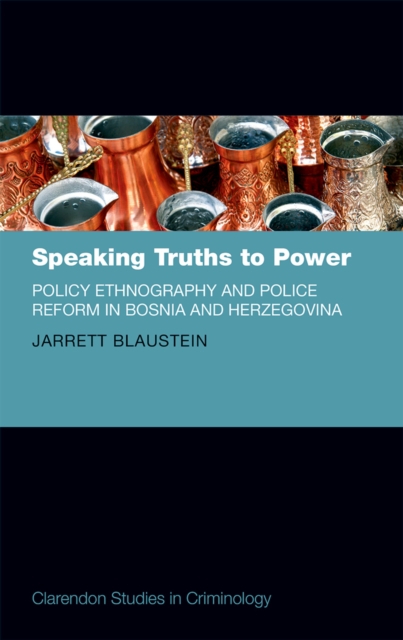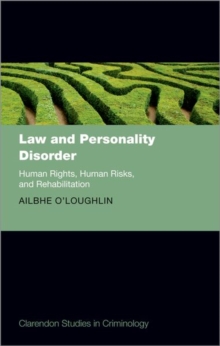
Speaking Truths to Power : Policy Ethnography and Police Reform in Bosnia and Herzegovina EPUB
by Jarrett Blaustein
Part of the Clarendon Studies in Criminology series
EPUB
Description
Speaking Truths to Power: Policy Ethnography and Police Reform in Bosnia and Herzegovina presents a rigorous institutional-level analysis of the effects of globalisation on local policing, drawing on data generated from two ethnographic case studies conducted in 2011 in the transitional, post-conflict society of Bosnia and Herzegovina.
Through a study of the structures, mentalities and practices, it situates the phenomenon of 'glocal policing' in relation tothe converging of discourses development and security following the collapse of the Soviet Union, and raises important questions about the purpose and value of criminological engagement with transitional policing. The idea of 'speaking truths to power' (as opposed to a single 'truth') is illustrated by the author's 2011 fieldwork, covering active police capacity building projects implemented by international organisations.
Both studies indicate that global inequalities affect police reform projects, but also that nodal opportunities do exist for seemingly disempowered stakeholders, specifically international development workers and rank-and-file police officers, to exercise reflexivity and use theiravailable power resources to mitigate structural harms, thus rendering their work responsive to the needs of policy recipients.
This mediatory role is then analysed through the conceptual lens of 'policy translation', providing an innovative framework for interpreting how policy meaning and content arealtered as a result of their transmission between contexts. Through detailed and persuasive investigation, Speaking Truths to Power argues that it is time for criminology to move beyond the established broad structural critiques of transnational policing power.
As the author demonstrates, an institutional perspective employing ethnographic methods can ensure that the revealed criticisms adequately reflect the diverse interests, experiences and understandings of the research participants.
Information
-
Download - Immediately Available
- Format:EPUB
- Pages:288 pages
- Publisher:OUP Oxford
- Publication Date:21/05/2015
- Category:
- ISBN:9780191034893
Other Formats
- PDF from £60.16
Information
-
Download - Immediately Available
- Format:EPUB
- Pages:288 pages
- Publisher:OUP Oxford
- Publication Date:21/05/2015
- Category:
- ISBN:9780191034893










